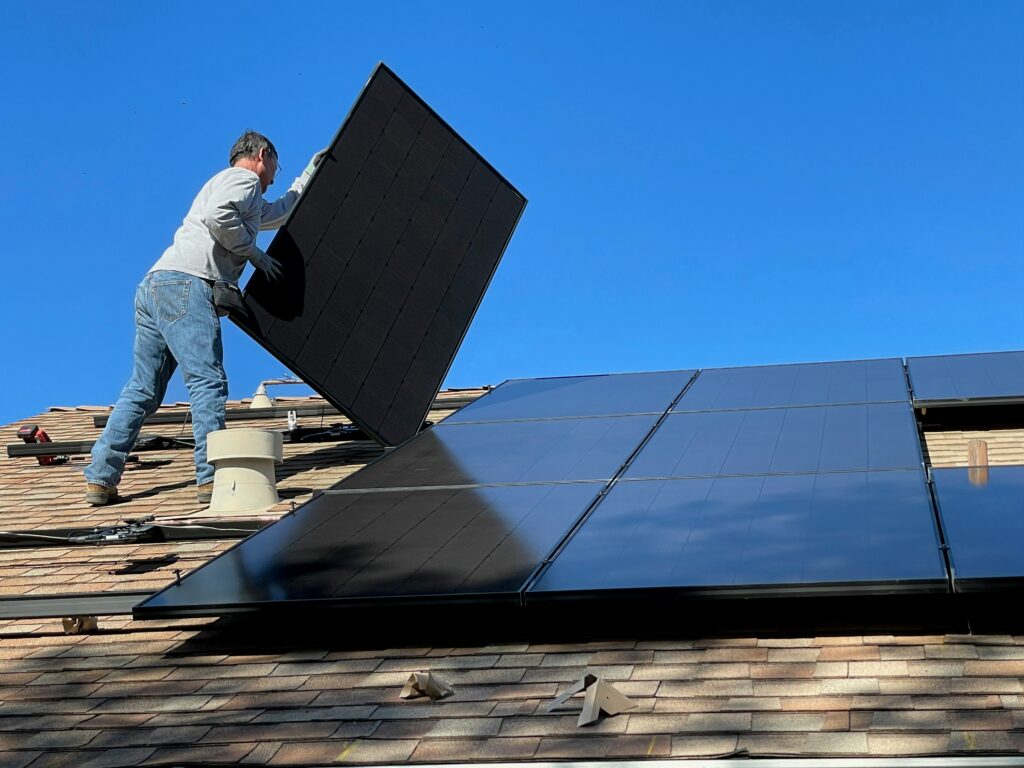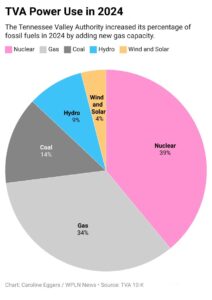
The Trump administration plans to end a $7 billion program to help low-income communities get access to solar power.
The program, called “Solar for All,” promised about $150 million for Tennessee.
“It was going to benefit 10,000 households,” said JoAnn McIntosh, the conservation committee chair for the Tennessee chapter of the Sierra Club.
In Tennessee, it is already hard to get solar: The Tennessee Valley Authority has a monopoly on electricity, and the utility has made choices and set policies to effectively suppress both utility-scale and rooftop solar. TVA sourced just 4% of its total electricity from solar last year and cut its rooftop solar program in 2020, a year after the utility slashed the financial incentives for the program.
 Caroline Eggers WPLN News
Caroline Eggers WPLN NewsThe Tennessee Valley Authority has been rapidly expanding its system of gas plants, which use fracked methane to produce electricity.
Nashville ranked 64th of 67 cities examined in a 2022 report from Environment America on solar capacity per capita. Only a fraction of a percent of households in the city have rooftop solar, and those households typically have higher incomes — the median household income in the U.S. for homes that added solar in 2023 was $115,000.
The Solar for All program was designed to address this wealth gap, letting low-income households get rooftop solar, batteries or possibly community solar systems while reducing planet-warming pollution.
Homes that produce their own electricity can save a lot of money on monthly bills, according to the Tennessee Department of Environment and Conservation, which would have overseen the program.
“They were estimating over $3 million per year in annual household savings across the state,” McIntosh said, through roughly 42 megawatts of solar capacity.
She suggested there would likely be legal challenges to the Trump administration’s plan, since the money was already promised by the Environmental Protection Agency.
The move is part of President Donald Trump’s broader agenda to reverse climate action while boosting the fossil fuel industry.

